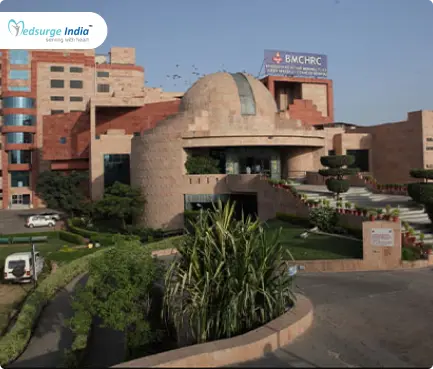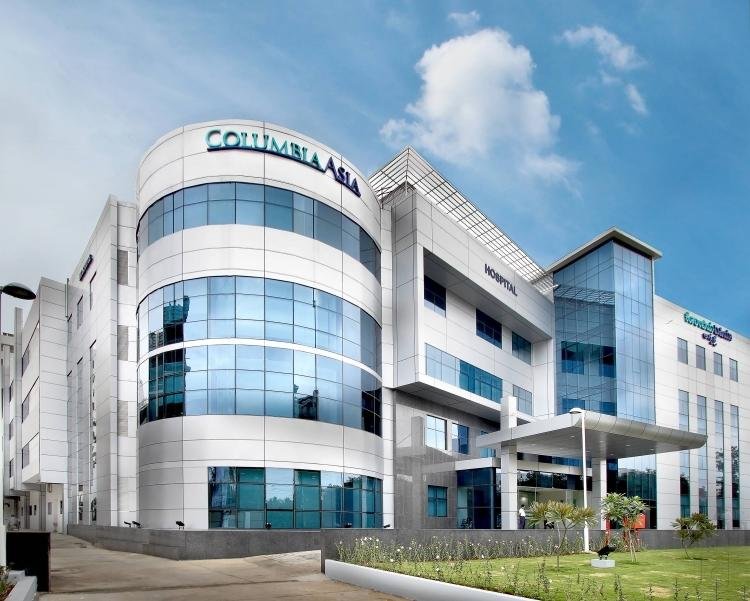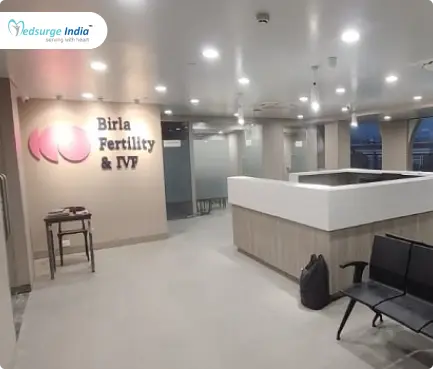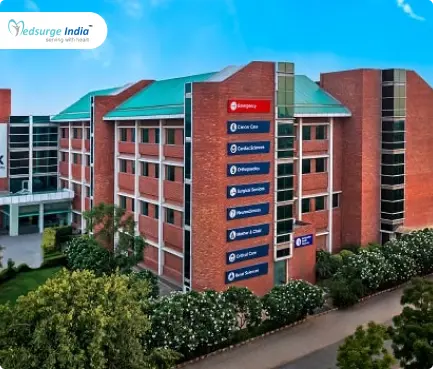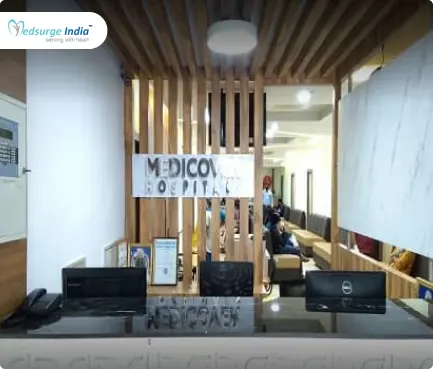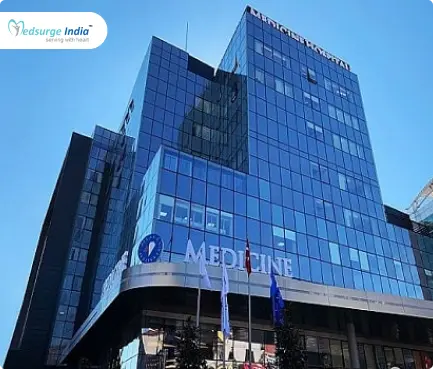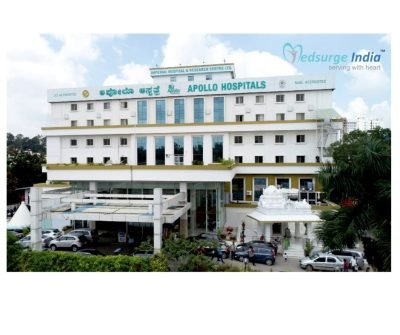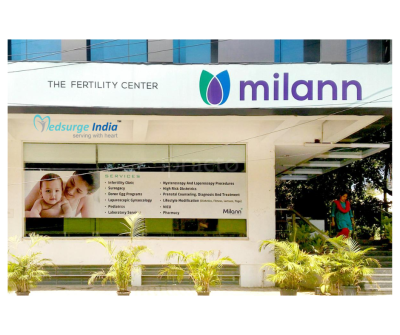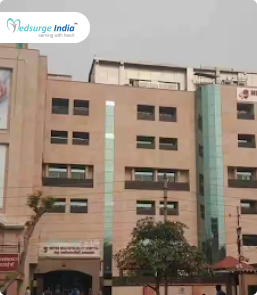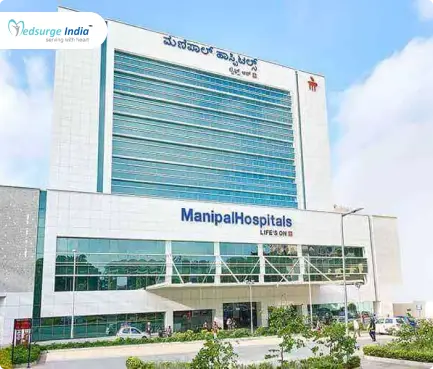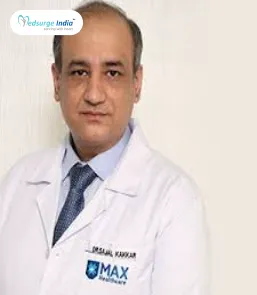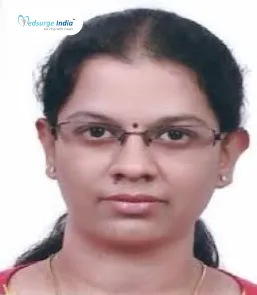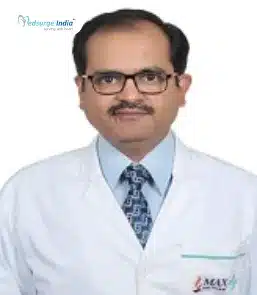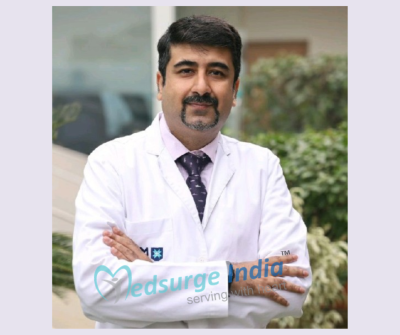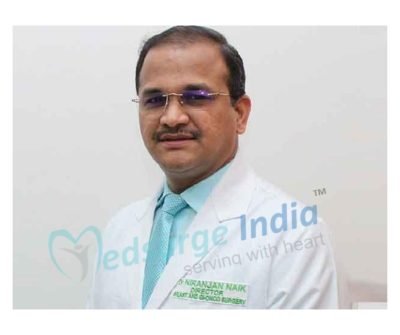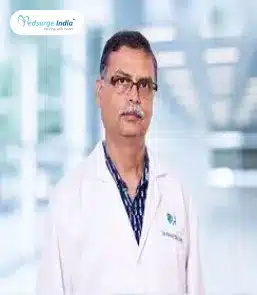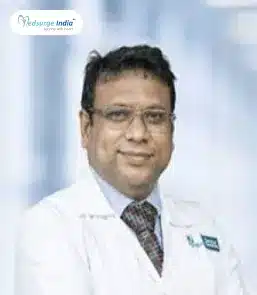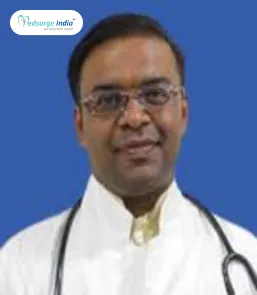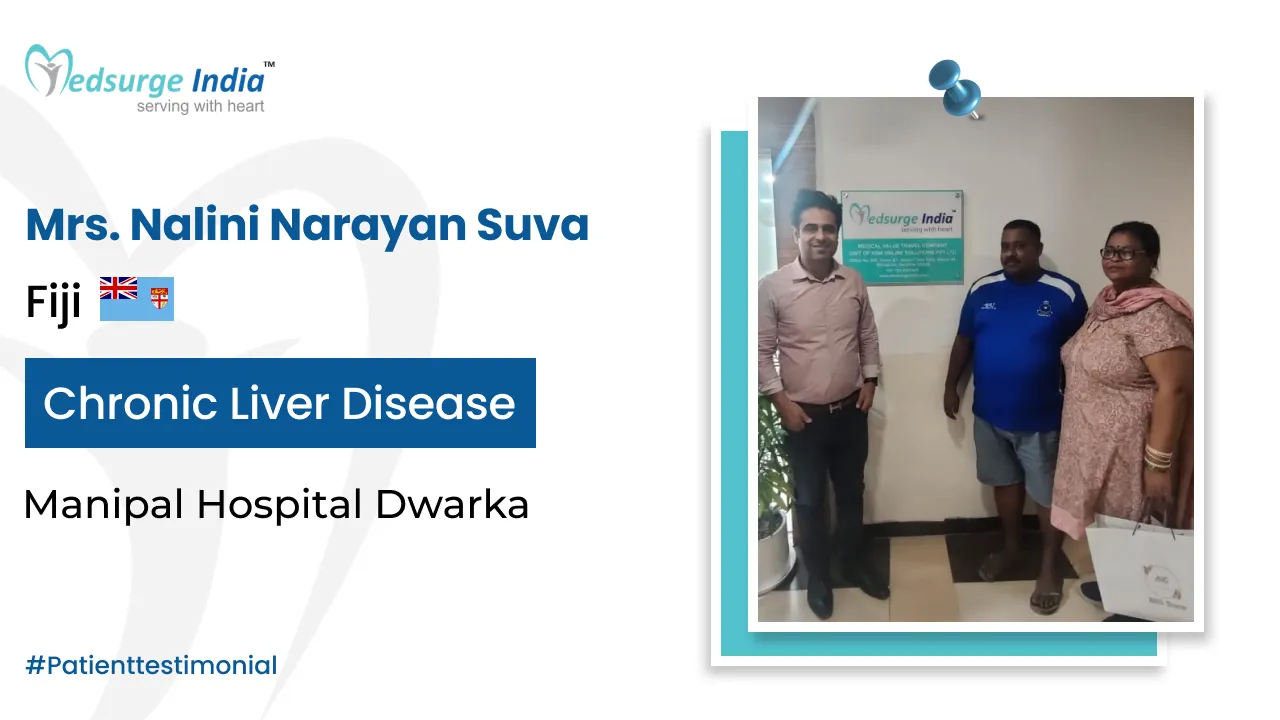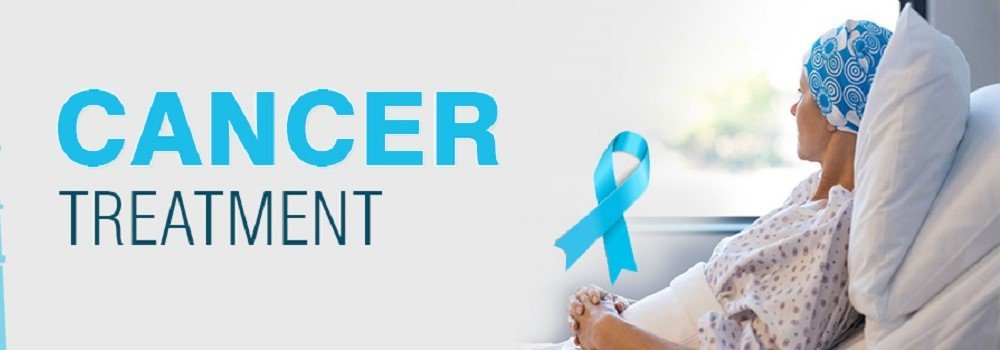
Cancer Treatment Cost in India
Cancer treatment cost in India can vary depending on the location, the reputation of the hospital, components of the entire cancer package, the experience of the specialist, the success rate, the type of cancer procedure required, and the medications needed. On average, cancer treatment cost in India can range from Rs. 80,000 to Rs. 8,00,000 (USD 1000 to USD 9600) or even more, depending on the above-mentioned factors.
Patients can choose several affordable cancer treatment options after consulting with an oncologist specialist. At Medsurge India, we provide patients with the most affordable cost for cancer treatment varying from INR 2000 to INR 15000. It is advisable to consult with an oncologist specialist for a customized treatment plan before starting your journey.
Know Cancer Treatment Cost in India in Detail
The Cancer treatment cost in India ranges from around INR 80,000/- Thousand rupees to INR 8,00,000/- Lakh Rupees (USD 1000 to USD 9600), depending on certain condition such as; the type of cancer a patient may have, additional procedures, and factors such as location and the hospital and doctor’s reputation. Let us explore the Cancer treatment Cost in detail.
Components of Cancer Treatment Cost in India
Cancer treatment cost in India generally includes the following components:
- Consultation fees: Fee of the doctor or the hospital charges for an initial consultation where the patient’s medical history and other evaluation tests are discussed. Know that the consultation fee can vary depending on the experience and reputation of the doctor.
- Medication cost: The cost of medications used in cancer in India can vary depending on the protocol and dosage prescribed.
- Diagnostic tests and ultrasound scans: These include various tests and scans to evaluate the type of cancer a patient, may have. It also includes blood tests, imaging tests, and other diagnostic procedues.
- Surgery: Removal of the tumor or cancerous tissues. The cost will also depend on the surgeon’s fees, hospital stay, anesthesia, and post-operative care.
- Chemotherapy: Use of drugs to stop cancer growth or kill cancer. The cost components will also depend on the chemotherapy drugs, nursing care, administration fees, and other management-like side effects.
- Radiation therapy: The cost components for this therapy will also depend on the radiation oncologist fees, radiation sessions, treatment planning, and follow-up.
- Targeted Therapy: Similarly the cost components of chemo and radiation therapy for targeted therapy will be the same.
- Immunotherapy: This procedure helps the immune system fight cancer. the total cost will depend on immunotherapy drugs, administration fees, and follow-up care.
- Hormone therapy: This procedure uses hormone-blocking drugs to treat certain types of cancer. The total cost will be estimated after going through the hormone therapy drugs and monitoring for side effects.
- Bone Marrow or Stem Cell Transplant: Replacement of damaged bone marrow with healthy stem cells. The cost components will depend on pre-transplant evaluation, stem cell collection, transplant procedure, and post-transplant care.
- Follow-up and Monitoring: Regular check-ups to monitor for recurrence and manage long-term side effects of the treatments.
It’s worth noting that the exact Cancer treatment cost in India can vary depending on the type of cancer or the type of procedure the patient may require. Therefore, checking with the hospital or with the coordinator about their specific cancer treatment cost and what is included is important.
Procedures: Cancer Treatment Cost in India
| Treatments | Starting Price |
| Surgery: To remove cancer cells/ tumors | USD 3100 |
| Chemo Therapy: Use of drugs to stop or kill cancer cells. | USD 650 |
| Radiation Therapy: Use of high radiation to shrink cancer cells. | USD 1600 |
| Immuno Therapy: Use of treatment to help the immune system to fight cancer cells. | USD 600 |
| Hormone Therapy: Use of hormone drug therapy to treat certain types of cancer. | USD 680 |
| Targeted Therapy: Drugs that are specially made for targeting cancer cells. | USD 870 |
| Bone Marrow Transplant/Stem Cell Transplant: Replacing damaged bone marrow with healthy ones. | USD 16000 |
Note: Keep in mind that the above mention cost provided is solely for the treatment. The overall Cancer Treatment cost in India will be determined based on several factors.
Why Choose Medsurge India For Cancer Treatment In India?
Medsurge India is a distinguished support system for patients in search of doctors, hospitals, and specialized treatments. We are dedicated to identifying the most appropriate medical solutions tailored to your needs. Our team will furnish you with a roster of accredited, esteemed, and reliable doctors and hospitals to address your medical concerns. Furthermore, we present a treatment plan that aligns with your financial constraints. In addition, we extend our support to patients in securing travel permits, medical visas, and various other necessities.
- Provides 100% transparency.
- Reasonable prices.
- 24×7 availability.
- Provide medical E-visa.
- Free online consultation with renowned specialists in India.
- Help you in choosing the best hospitals for cancer treatment in India.
- In accordance with the utmost international standard
- Qualified oncologist specialist with a high success rate.
- Provide support throughout the treatment.
Also Read – Lung Cancer Treatment Cost in India | Watch Videos Myths & Facts
Get Free Cost Estimation
Top Hospitals for How Much Cancer Treatment In India
Top Doctors for Oncology and Oncosurgery
Dr. Sajal Kakkar
Associate Director
Experience: 19 years of experience
Max Superspecialty Hospital, Mohali
Mohali, India
Dr. Chandrani Mallik
Consultant
Experience: 10 years of experience
HCG EKO Cancer Centre, Kolkata
Kolkata, India
Dr. Boman Nariman Dhabhar
Senior Consultant
Experience: 31 years of experience
Fortis Hospital, Mulund, Mumbai
Mumbai, India
Dr. Ankur Bahl
Director
Experience: 16 years of experience
Fortis Memorial Research Institute, Gurgaon
Gurgaon , India
Dr. Rahul S Kanaka
Consultant
Experience: 12 years of experience
Manipal Hospital Sarjapur Road, Bengaluru
Bengaluru, India
Dr. Sowrabh Kumar Arora
Associate Director
Experience: 13 years of experience
Max Super Speciality Hospital, Patparganj, New Delhi
New Delhi, India
Dr. Niranjan Naik
Director , MBBS, MS
Experience: 25 years of experience
Fortis Memorial Research Institute
Gurgaon, India
Dr. Praveen Kumar Garg
Senior Consultant
Experience: 26 years of experience
Indraprastha Apollo Hospital New Delhi
New Delhi, India
Dr. Manish Singhal
Senior Consultant
Experience: 20 years of experience
Indraprastha Apollo Hospital New Delhi
New Delhi, India
Dr. Vijay Agarwal
Senior Consultant , Diploma, MRCP, MD, MBBS
Experience: 17 years of experience
Aster CMI Hospital (Hebbel) Bangalore
Bangalore, India

